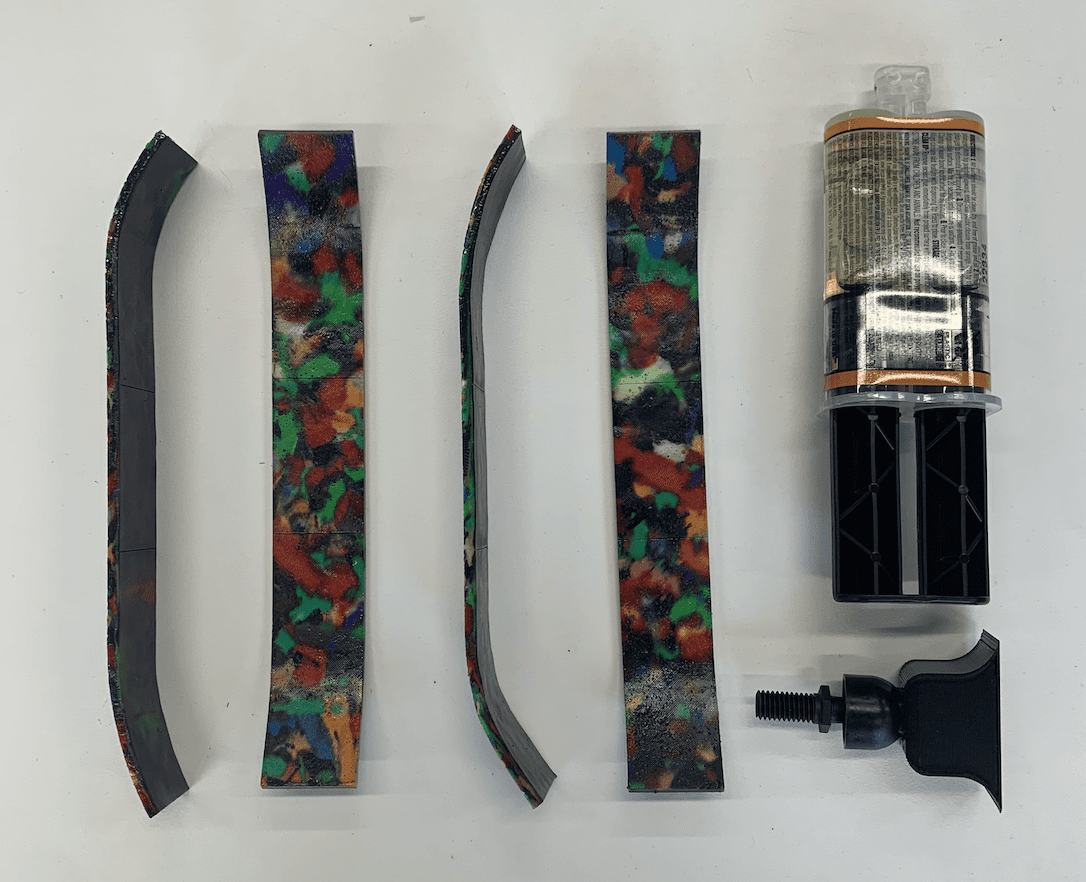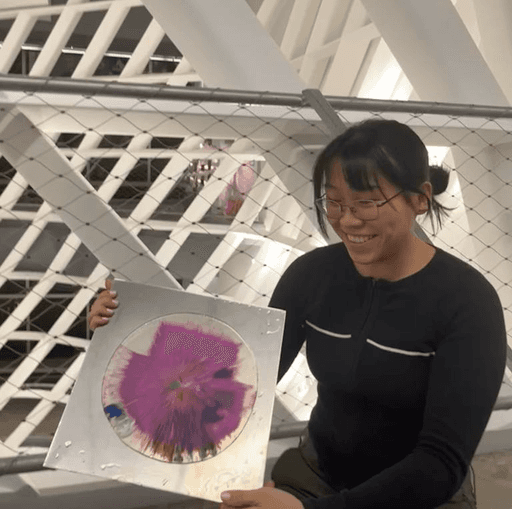ReCoop
Cooper Union's first in-house PLA Recycling System
Company/ Client
ReCoop Cooper Union
Role
Founder Project Manager Fundraiser
Skills
Sustainable Design 3D Printing Heat Transfer
Tools
Laser Cutter Water Jet Cutter
Duration
2022-2023

Developing a Method for Sheets
By Spring 2023, I was able to solidify methods for sheet pressing PLA rounds using a T-shirt press. I explored many temperature and timing settings, literature on PLA, and Instron testing to determine the perfect concoction of parameters for glassy PLA sheets.
In addition to the sheet pressing method, curious students and students from the ReCoop project enrolled in an independent study with Douglas Thornhill on the material properties of Poly Lactic Acid (PLA) to better understand its life cycle in terms of polymerization and decomposition and address potential safety concerns for the recycling system.
Mechanical Testing
After developing a repeatable method of generating PLA 1/8" sheets, I used the Instron machine to test the mechanical behavior of the sheets. I laser cut dog bones and performed tensile testing on dog bones composed of varying ratios of virgin PLA to shredded recycled PLA. The greater the fraction by weight of recycled PLA, the more brittle the sample.
This mechanical data allowed me to develop sustainable, light weight, competition-grade VTOL drone landing gear for my senior capstone project


Landing Gear
Laser-cutting recycled PLA for VTOL drone landing gear

Web Design
Using HTML, CSS, and design tools for out reach

Poster Design
Creating posters in Adobe Suite
While my last year at Cooper flew by, I made sure that the team could learn and understand the material science behind PLA recycling before sheet pressing, extruding, and injection molding to ensure a well-thought-out recycling process.
In future semesters, ReCoop can grow to offer additional recycling methods and polish methods for using the injection and silicone molding processes. The ReCoop project will continue to help the Cooper community in its zero-waste initiatives and provide materials for future projects.











